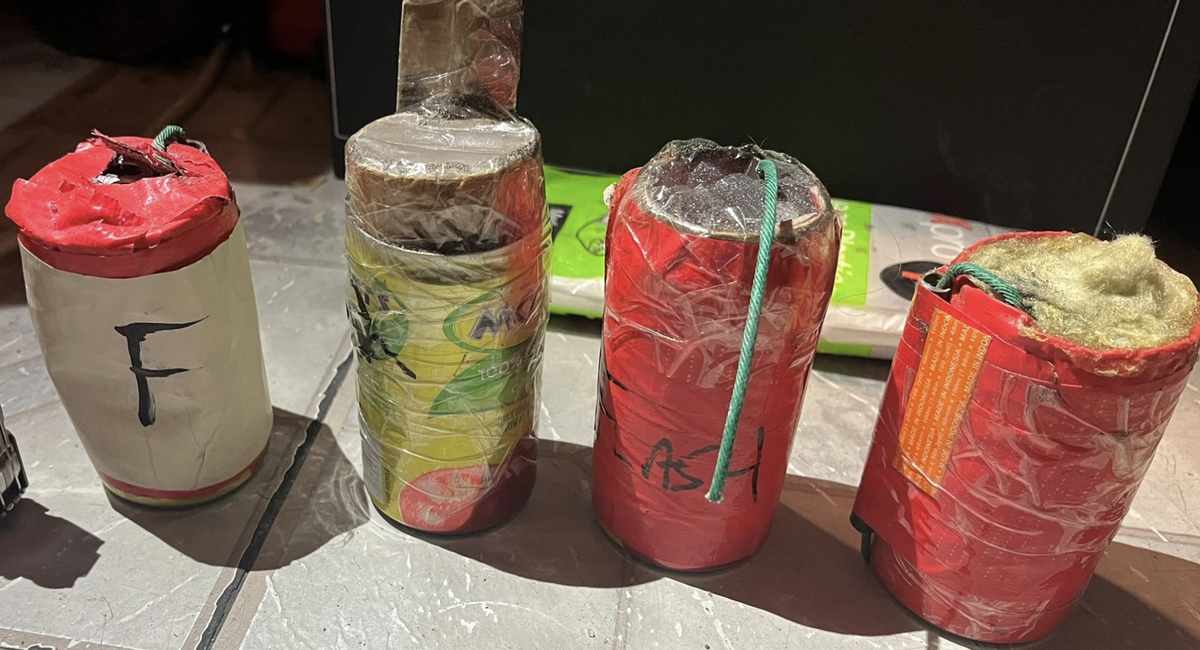Residents of a four-story, historic building on a quiet Astoria street said the family on the second floor always seemed odd.
They were usually quiet but seemed to quarrel easily, neighbors said. They posted a standing order to the outside world on their buzzer downstairs: “Don’t buzz our bell!”
But when police armed in tactical gear burst into the home of brothers Angelo and Andrew Hatziagelis on Jan. 17, neighbors said they were stunned by what was discovered inside. Police said the brothers were hoarding a stash of guns, ammunition, body armor, threatening manifestos and homemade bombs in their apartment.
“It’s not even just one feeling, it’s like a plethora of feelings,” said upstairs neighbor Shaleen Heffernan, who first met the Hatziagelis family almost 20 years ago when they moved into the seven-unit building shortly after she did.
“On one hand, you’re like, it figures ‘cause they’re not normal,” Heffernan continued. “And then you’re scared.”
Law enforcement officials also found a scrawled “hit list” where the brothers vowed to “wipe out the scum,” including police officers, judges, politicians and celebrities. They also discovered a notebook filled with pages of handwritten bomb-making instructions.
“What kind of headspace are they in that they would make a manifesto? And a hit list?” said Heffernan. “And then you feel bad because you’re their neighbor, and like, could you have done more?”
That question has bedeviled New Yorkers for decades. The brothers are presumed innocent until they stand trial. But the neighbors’ aversion to getting involved in other people’s business is common in big cities like New York, especially if something happens close to home. Distant gunshots and violent fights can go unreported.
Catherine Sanderson, a professor of psychology at Amherst College, said three main factors may discourage neighbors from getting involved in other people’s business — particularly if they’re in an urban setting,…
Read the full article here

Leave a Reply